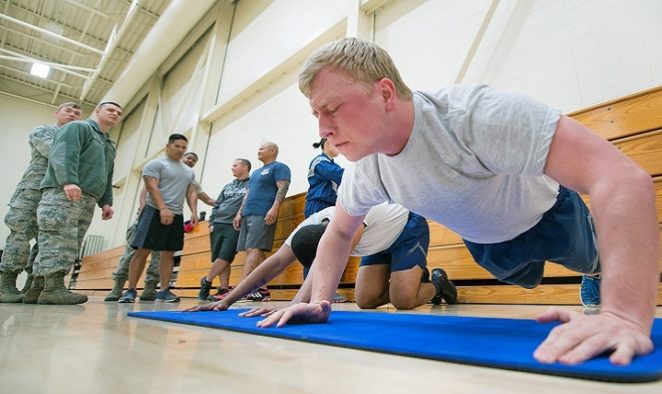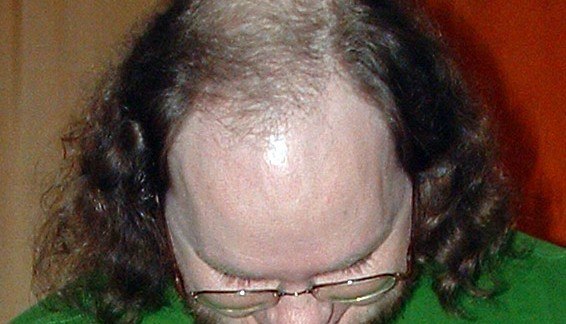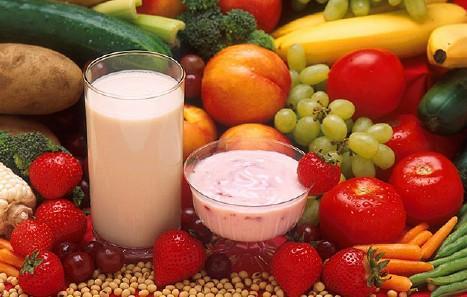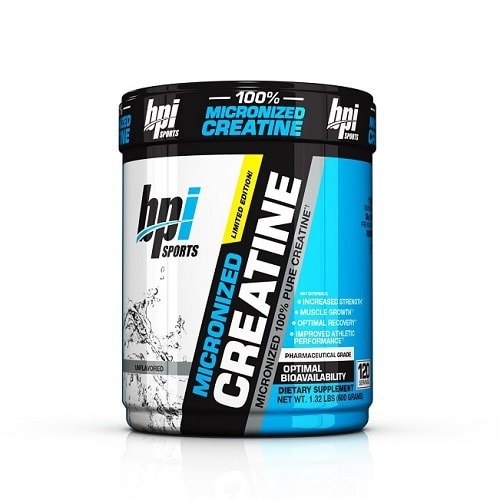Testosterone Booster Ideas: Tips to Increase Testosterone Levels Naturally

Testosterone is the main sex hormone of the males. It plays a major role in the development of the reproductive tissues of the male like the prostate and the testis. The testosterone also promotes the male’s secondary sexual characteristics such as an increase in the bone mass, broadening of the muscles, and the growth of the body hair.
Overall, testosterone facilitates the health and well-being of the males. If the testosterone level of the males is insufficient, it might possibly lead to abnormalities like ‘hypogonadism‘ and infertility.
Through the years, the number of males with low testosterone level is increasing. One factor is the age of the men. There are various methods to treat such issues like using supplements, changing the diet, exercising, and undergoing testosterone replacement therapy (TRT).
In this article, we’ll discuss what is testosterone and what are some of the tips to boost the testosterone level of the men.
Understanding what is Testosterone
 Testosterone is a male hormone which is responsible for the development of the male sexual characteristics. Testicles produce this type of hormone in the ‘Leydig cells’.
Testosterone is a male hormone which is responsible for the development of the male sexual characteristics. Testicles produce this type of hormone in the ‘Leydig cells’.
Meanwhile, there are females that also produce testosterone, although in small amounts only.
Testosterone in males regulates various body functions alongside the production of the sperm. It includes an increase of the muscle size, bone mass, sex drive, and production of red blood cells. It is also responsible for equal fat distribution and strength of the body.
The brain and the pituitary gland controls the testosterone levels. During production, the hormone moves through the blood and carry out its various functions.
When the testosterone level becomes inadequate; there is a decrease of the development of mature sperm and men become infertile.
Testosterone Imbalances on men
Low Testosterone
As men ages, the testosterone levels decreases too. Thus it is important to conduct tests to determine whether any imbalance is due to separate conditions.
If the level of testosterone is low, then men might possibly have ‘Hypogonadism’. The signs and symptoms are as follows:
- Body hair loss

- Body fat increases
- Enlargement or swelling of the breast tissue
- Erectile dysfunction
- Hot flashes
- Low sperm count
- Muscle bulk decreases
- Strength decreases
If the level of testosterone becomes chronic or ongoing, it might lead to mood swings, osteoporosis, shrinkage of the testicle, and a decrease in energy levels.
Meanwhile, the causes of hypogonadism include:
- Castration or injury of the testicles
- HIV/ AIDS
- Infection of the testicles
- Kidney and liver disease
- Klinefelter syndrome, Prader-Willi Syndrome, Kallmann syndrome, Hemochromatosis, and other genetic diseases
- Myotonic dystrophy
- Obesity
- Pituitary tumors and other disorders that affect the hormones
- Type 2 diabetes
- Use of opiate analgesics as medication
Aging in Men

As man becomes older, the level of testosterone decreases too.
When men reach 40 years of age, the testosterone level falls by 1.6% per year. As men reach 45 years old, 4 out of 10 men develops hypogonadism according to research. Since 2012, there is an increase of men with hypogonadism which is about 170% according to Swiss Medical Weekly.
Meanwhile, there is an association of hypogonadism with the mortality of the male veterans. Indeed, the late-onset hypogonadism has become an alarming medical condition, although on the other side of the debate it says that it is related to normal aging.
Here are the signs and symptoms of late-onset hypogonadism:
- Abdominal fat decreases
- Anger
- Body hair decreases
- Bone mass and mineral density decreases
- Changes in skin
- Cognitive function reduces
- Decrease in erectile quality especially at night
- Depression
- Fatigue
- Libido decreases
- Mood Swings
- Muscle mass and strength decreases
Apart from sexual dysfunction, late-onset hypogonadism can also cause cardiovascular and metabolic diseases.
The degree of the decline of testosterone levels varies between men, but a growing number of males now experience the effects of low hormone levels.
High Testosterone Level on Men
Meanwhile, if the testosterone level is high, it can trigger early puberty before the boy becomes 9 years old. This condition is much rarer than hypogonadism. It affects young boys more than older men.
Testosterone on Women
Women also produce testosterone in their body although in small amounts only. It can contribute to the density of the bones, the strength of the muscles, and sex drive.
If there’s an excess of this hormone, women can experience infertility, baldness, and menstrual irregularities. They can also feel changes in their body such as reduction of the breast size, acne, oily skin, deep voice, swelling of the clitoris, and growth of the facial hair. Furthermore, high testosterone levels in women can lead to a higher chance of having ‘uterine fibroids’.
Tips to Boost Testosterone Level
Here are some of the tips on how to naturally boost the level of testosterone in the body and prevent several diseases:
1. Lose weight
 One tip to naturally boost hormone level is to lose weight. You can do this by changing your lifestyle and incorporating exercises into your routine.
One tip to naturally boost hormone level is to lose weight. You can do this by changing your lifestyle and incorporating exercises into your routine.
As men ages, he becomes busy and his body becomes inactive. Ultimately, the condition of the hormone changes too. Thus to prevent such thing to happen, make sure to get enough exercises.
You can try aerobic exercises because this can pump your blood and make you more active. Try basketball, running, brisk walking, cycling, or swimming. Apart from aerobic exercises, you can also try strength training such as weightlifting, push ups, pull ups, and resistance bands.
Start slowly by exercising from 20 to 30 minutes per day, 3 to 5 times a week. Do 5 minutes of warm-up before the exercises and 5 minutes of cooldown thereafter. Get yourself hydrated on the entire workout session and take some rest in between.
Also, take a rest on the 6th and 7th day of your workout. On the following week, gradually increase your time and the intensity of your exercises. Remember not to overstress your body on exercises because this might cause injuries soon. Continue exercising for over two months to see the results.
You can keep a diary or journal with you to track down your progress. Note the weight you lose plus the goals that you have in your mind.
2. Reduce stress
 Another tip is to reduce stress and get away from the stress-producing environment. Stress can produce cortisol which can block the production of testosterone.
Another tip is to reduce stress and get away from the stress-producing environment. Stress can produce cortisol which can block the production of testosterone.
If you are feeling drained from your work, studies, and other responsibilities in your life, spend a quality vacation together with your loved ones. Have some massage, practice yoga, or travel the places you’ve never been to. Reunite with nature, fill your lungs with fresh air, and rest your mind for some time.
It is also advisable to sleep 8 hours per day. Less sleep can make losing weight difficult, can give you headaches and more stress, and it can decrease testosterone level too.
You can also revisit your plans and see how to address the situation that causes the stress that you’re currently experiencing. Stress can drain the life in you, so get out of it.
3. Get some sunshine

Take a walk early in the morning and get some sun. You can just walk from your home to your office in the morning. Spend 15 to 30 minutes to get Vitamin D from the sunlight.
Vitamin D can increase 20% more testosterone in your body. Apart from this, the sunlight can also refresh you and get you ready for the new day ahead.
4. Change your diet
![]()
 To reduce the decrease of testosterone level, one must change their diet.
To reduce the decrease of testosterone level, one must change their diet.
To do this, eliminate the fructose (fruit sugar) and glucose (sugar) in the food that you eat. As much as possible, avoid eating and drinking carbonated drinks, processed foods, sweets, and alcoholic drinks.
Eat instead fruits and vegetables and healthy fats. This includes fish, quality meats, grains, nuts, and seeds.
Make sure to drink plenty of water to hydrate your body. It is important to reduce your food proportion and snacking in order to lose weight. Make sure to eat when hungry and avoid eating in front of gadgets or television to prevent overeating. Furthermore, avoid doing the crash diet because this will do more harm than good on you.
4. Consider taking food supplements
To treat low testosterone level, you can take supplements. However, there are still no oral testosterone supplements that are approved for sale by the laws of the United States.
The following are some of the food supplements that do not contain testosterone but can help increase the hormone level:
Branched Chain Amino Acids (BCAA)
Taking BCAAs can result in an increase of testosterone level when done with resistance training, according to research. You can take BCAAs in supplement form, but you can also gain it from eating dairy products such as whey protein and cheese.
There are now powder-form BCAAs which are available in various flavors and also capsules.
Creatine Monohydrate
 Creatine Monohydrate is a food supplement used by athletes and weightlifters. A creatine is similar to protein because it contains a nitrogen-containing compound. It is also known as ‘non-protein’ nitrogen. Creatine is in the food that we eat such as fish and meat. It can be formed in the body endogenously from the glycine, amino acids, and methionine.
Creatine Monohydrate is a food supplement used by athletes and weightlifters. A creatine is similar to protein because it contains a nitrogen-containing compound. It is also known as ‘non-protein’ nitrogen. Creatine is in the food that we eat such as fish and meat. It can be formed in the body endogenously from the glycine, amino acids, and methionine.
Creatine Monohydrate can provide cellular Adenosine Triphosphate (ATP) to increase the strength of the muscles. Research also suggests that taking creatine monohydrate can increase up to 15% of testosterone level.
There are various types of creatine monohydrate products in the market today which includes a powder drink with different flavors.
Vitamin D
Vitamin D is important in the development of the nucleus found in the sperm cell and increases the testosterone level. It helps maintain the sperm count, the semen quality, and boost the libido.
There are many people in the United States and other parts of the world who suffer Vitamin D deficiency because they don’t spend enough time under the sun to facilitate Vitamin D production.
Thus, the first way to have Vitamin D is to expose yourself to the heat of the sun in the morning. As a last resort, you can take Vitamin D3 supplement orally. Take 8,000 I.U.of Vitamin D each day to prevent diseases.
Zinc

Zinc is important for producing testosterone. If one supplements his diet with Zinc for at least 6 weeks, it can possibly cause an improvement in the level of testosterone.
This nutrient can be found in the food that you eat such as protein-rich foods (fish and meat), cheese, milk, beans, and yogurt. However, you can also buy Zinc supplements in pharmacies today.
Take less than 40 mg of Zinc each day because this is the limit for the adults. Too much Zinc can interfere with the body’s natural ability to absorb other minerals like copper. Furthermore, too much Zinc intake can cause nausea and other side effects. Make sure to always check with your doctor first before taking Zinc.
Testosterone Replacement Therapy
Apart from the tips above-mentioned, you can also try the Testosterone Replacement Therapy (TRT). It can help restore low testosterone level and its affected functions in the body. It is an artificial version of testosterone after finding out that the patient has low levels of hormone through blood tests.
According to research, TRT can impact the strength of the bone and the level of hemoglobin in the blood. However, it can not affect mental sharpness.
TRT can be done through skin patches or gels, tablets taken through the gums, and injections.
On the other hand, TRT can have many side effects such as enlargement of the breast and the prostate, having acne on the face, and slurred speech. In addition, TRT can also cause chest pain, shortness of breath, weakness on one side of the body, increase in red blood cell count, difficulty in sleeping, and increase the risk of having cardiovascular disease.
If you wish to pursue to have a TRT, decide first together with your physician the benefit of the therapy on alleviating the signs and symptoms versus the risk of the TRT.
Prohormone Supplements
Prohormones are a kind of steroid which weightlifters and athletes use to build muscles and lose weight. A number of marketers tell men that it can also treat low testosterone levels. Examples of which are the Dehydroepiandrosterone (DHEA) and Tribulus Terrestris which is a herbal product. However, in 2014, a bill was passed banning these kinds of anabolic steroids in the market.
Thereafter, legal variants begin to flood the market. On the other hand, there is still little research to support that this prohormone supplements can affect the level of testosterone in both men and women.
As a matter of fact, these supplements can cause a health risk to consumers. It can cause an imbalance in the level of blood cholesterol because this might decrease the good cholesterol in the blood.
Furthermore, the US laws don’t require herbal products to be proven safe before selling in the market, thus extreme care is recommended.
Conclusion
In sum, maintaining testosterone levels are essential especially for men, however, they decrease as they become older. Deficiency of this hormone might be caused by an active disease and it can possibly show symptoms of severe to the chronic low level of testosterone.
There are several treatments available nowadays however, proper research must be done to prevent side effects. Oftentimes, low levels of testosterone can lead to mild and without harmful physical effects and sometimes it doesn’t need immediate medical attention.
But to be safe, always check your doctor and confirm if you need any treatment.
